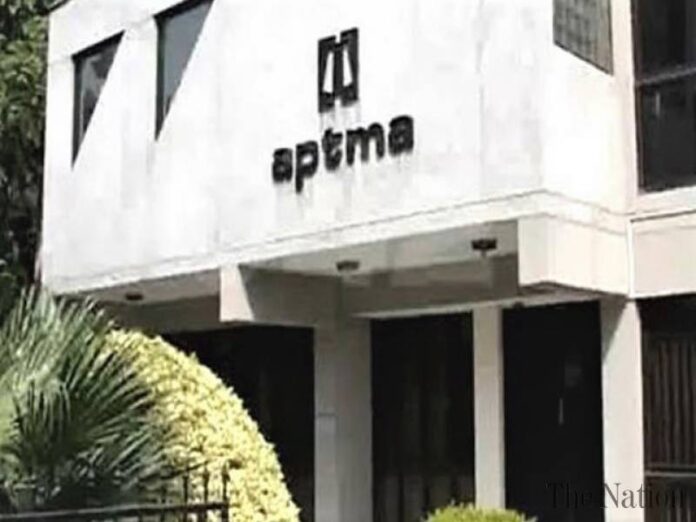LAHORE: The All Pakistan Textile Mills Association (APTMA) has issued a dire warning, predicting widespread closures and significant job losses in the textile industry if the government fails to allow the implementation of a Regionally Competitive Energy Tariff (RCET). Chairman of APTMA North Zone Hamid Zaman, expressed grave concerns over the potential consequences of denying the export sector a tariff of 9 cents/kWh for electricity and $9/MMbtu for gas across the nation.
Zaman stressed the urgent need for a fair and level playing field in energy supply, urging the government to provide electricity to the textile industry at the actual cost of service, excluding cross-subsidies. He underscored the importance of maintaining competitiveness both within the country and internationally by ensuring equitable access to gas supplies.
Speaking at a post-budget press conference held at the Association’s Zonal office on Monday, Zaman was joined by senior APTMA officials, including Senior Vice Chairman Kamran Arshad, Vice Chairman Asad Shafi, Secretary General Raza Baqir, and other esteemed members.
Zaman referred to the National Electric Power Regulatory Authority (NEPRA), which estimates the actual cost of electricity at Rs 23/kWh (8.2 cents/kWh) for B3 and B4 consumers. However, this cost escalates to over Rs 40/kWh when factoring in cross-subsidies, capacity payments to Independent Power Producers (IPPs), line losses, power theft, and other charges. Zaman argued that it would be unjust to burden the export industry, which already achieves a 100% recovery rate for its bills and experiences zero losses, with the costs resulting from such inefficiencies and mismanagement.
Zaman further highlighted the exorbitant electricity tariffs in Pakistan compared to neighboring countries. He pointed out that while the regionally competitive energy tariff, including cross-subsidies, reaches 16 cents/kWh in Pakistan, it stands at 8 cents/kWh in India, 10 cents/kWh in Bangladesh, and 6 cents/kWh in Vietnam. He stressed that the RCET is not a subsidy, as it is determined after excluding cross-subsidies, which cannot be exported.
Citing a recent study by the Pakistan Institute of Development Economics (PIDE), the Chairman of the North Zone expressed concern over the potential deindustrialization of Punjab if the RCET is withdrawn. The study warns of catastrophic consequences such as layoffs, reduced investment, declining export shares, profit margin contractions, and an overall decline in industrial output. The study concluded that increasing electricity tariffs for the industry only serves as a cross-subsidy from the industry to other sectors, lacking any legal, economic, or technical justification.
Zaman highlighted the textile industry’s struggle for growth without government support, stating that it had earned $16 billion in exports during the current fiscal year, falling short of the $25 billion target. However, the industry experienced a surge in textile exports to $19.3 billion during the last fiscal year due to the government’s supportive attitude.
Continuing the RCET, Zaman argued, would facilitate a significant increase in exports to $50 billion over the next five years. The textile sector plans to establish 1000 garment plants in the Small and Medium Enterprises (SME) sector, with an investment of $7 billion, resulting in annual exports of $20 billion and employment opportunities for over 700,000 workers.
The Chairman warned that withdrawing the RCET would not only lead to a loss of $10 billion in exports annually but also disrupt the industry’s investment plans to establish 1000 garment units, which would create millions of new jobs.
APTMA Chairman called for a cost-of-service-based tariff for the export sector, demanding the restoration of RCET for electricity at 9 cents/kWh and gas at $9/MMBTU in the next financial year. Zaman suggested that a sufficient amount could be allocated from the energy subsidy of Rs 1074 billion allocated for the upcoming fiscal year. He also urged the implementation of a uniform gas price for the export industry across the country, based on the Weighted Average Cost of Gas (WACOG) passed in February 2022.
Zaman highlighted that 30% of Punjab’s textile industry has already partially closed, and complete shutdowns are becoming increasingly common. The closure of these industries would result in a loss of $10 billion in exports annually, and 700,000 employees have already lost their jobs in the textile sector alone. Alarmingly, millions more are expected to face layoffs if the situation remains unchanged.

























Do Dil Mil Rahe Hain is an Indian romantic drama television serial.
The show is originally made in the Bengali language